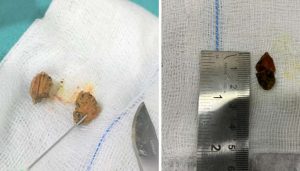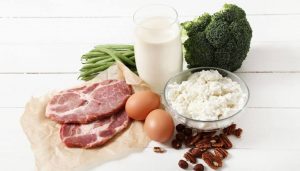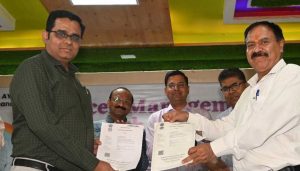Gunasheela Hospital successfully helps a sickle cell anemia carrier Maharashtra couple in giving birth to a disease-free baby through Preimplantation Genetic Diagnosis (PGD)
Pune, October 16, 2019: In yet another demonstration of making parenting a risk free experience especially for couples with a known genetic disorder, Gunasheela Surgical & Maternity Hospital, Bangalore has successfully helped a Maharashtra couple having Sickle Cell Trait to become proud parents of a ‘healthy baby girl’ without mutations in the HBB gene which causes sickle cell disease.
For Dr. Vinishree, (35 years) married to Mr. Alok Kale from Maharashtra and currently residing at Mysuru, parenting was a cause of worry as both partners were carriers for sickle cell trait. Having been married for four years and trying to become parents for two years, it was an anxious period as they were worried that their baby would be afflicted with sickle cell disease.
Sickle cell disease is the most common chronic blood disorder with an autosomal recessive inheritance. The disease occurs from a single base mutation in the Beta-Globin chain. The sickle cell disease occurs when the child inherits one mutated/abnormal gene copy from each parent, therefore having both copies mutated or abnormal.
With this being the case, the couple underwent IVF at Gunasheela Hospital, wherein 11 embryos were subjected to pre-implantation genetic screening(PGS) and 8 embryos were found to be chromosomally normal. Pre-implantation Genetic Diagnosis was then performed on 8 embryos of which, one was normal, 4 were carriers for the mutation and 3 were affected with sickle cell disease. Mrs. Kale had a single embryo transfer in a frozen cycle and conceived. Her antenatal period was uneventful and she delivered a healthy baby girl with the absence of mutations which the parents were carriers for and therefore free from sickle cell disease.
Addressing media at a press conference here today, Dr. Devika Gunasheela, Fertility Specialist & Managing Director, Gunasheela Fertility Centre, said, “Technology has paved way to ensure hassle free and healthy birthing. Having been at the forefront of introducing many cutting edge protocols for several decades, we want to maintain this legacy in offering contemporary technology related to producing babies free from certain genetic diseases and Pre-implantation Genetic Diagnosis (PGD) is one such technology which offers couple with genetic disorders to have healthy babies devoid of the same”.
According to Dr. Rajsekhar Nayak, Director, Gunasheela Fertility Centre, PGS and PGD testing by comprehensively evaluating the chromosome number, paves the way for a healthy baby and ensures the genetic mutation is also not passed to next generation. This case study of Mysuru couple amply demonstrates the efficacy of PGD technology and gives us the confidence that the same could be applied for many more monogenic genetic orders including Duchenne Muschlar Dystrophy, Cystic Fibrosis, Beta-Thalassemia, Sickle Cell Disease, Fragile X Syndrome, Haemophilia A, etc.
Dr. Jayaram S. Kadandale, Cytogeneticist & Scientific Advisor, Gunasheela Fertility Centre and Dr. Swathi Shetty, Molecular Geneticist & Scientific Advisor, Gunasheela Fertility Centre, revealed that Sickle Cell Disease is one of the most common inherited disease worldwide and is now understood to be a disorder of global importance – economic as well as clinical significance. Further, they pointed out that in India, the prevalence of Beta thalassemia is more in certain populations including Sindhis, Punjabis and certain tribal communities, varying from 1 – 17%. The carrier frequency in the general Indian population is around 4%. Further, they said, carriers of beta-thalassemia or sickle cell mutatation usually do not manifest any problems in their lives, but they can pass on these mutations to their children and if both the partners are carriers of sickle cell disease, they have a one in four chance of having a baby that is affected with full-blown disease and all its underlying complications.







